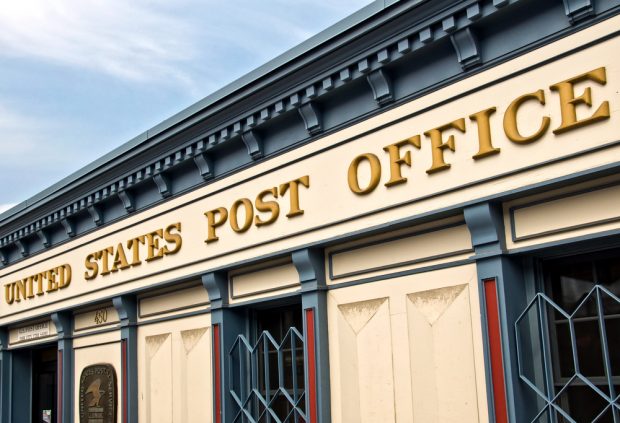 U.S. Post Office (Image: Shutterstock).
U.S. Post Office (Image: Shutterstock).
A Trump Administration task force studying the U.S. Postal System has recommended that the system stay out of the banking business.
"Given the USPS's narrow expertise and capital limitations, expanding into sectors where the USPS does not have a comparative advantage or where balance sheet risk might arise, such as postal banking, should not be pursued," the task force said.
Recommended For You
President Trump established the task force in April; it consisted of administration officials who were tasked with exploring ways to make the system more sustainable. Critics charged that Trump was trying to find ways to harm Amazon, which headed by Jeff Bezos. Bezos also owns the Washington Post, a newspaper that often is critical of the administration.
While the task force recommends myriad changes to the postal system, it did not recommend establishing postal banks, a decision that was welcomed by the credit union community.
"The Treasury's postal report confirms what we already know – providing banking services is well outside the U.S. postal service's wheelhouse," said NAFCU President/CEO B. Dan Berger. "Entering this space would only exasperate the agency's financial woes." areas where it has no expertise."
Earlier this year, Rep. Patrick McHenry (R-N.C.) vice chairman of the House Financial Services Committee wrote Treasury Secretary Steven Mnuchin, asking him to ensure that the task force abandon the postal banking idea.
Policymakers have been debating the postal banking issue for years.
Sen. Kirsten Gillibrand (D-N.Y.) has introduced legislation to allow the postal service to offer consumer banking services.
From 1911 to 1967, the Postal Savings Service gave consumers the opportunity to make savings deposits at certain post offices.
And in 2014, the Postal Service's own Inspector General said the service could provide financial services if it partnered with already existing financial institutions.
In 2016, Democrats included a plan for postal banking in their party platform, which was adopted at the Democratic National Convention.
Finally, a coalition of labor unions and consumer groups, known as the Campaign for Postal Banking, has been pushing the idea for several years. The campaign, which includes the labor unions representing many postal workers, contends that the Postal Service can increase and modernize its money order and international remittance authority under current law. Congress would not have to pass legislation for that.
Then, slowly, the Postal Service could seek regulatory and congressional approval to provide additional services.
© Touchpoint Markets, All Rights Reserved. Request academic re-use from www.copyright.com. All other uses, submit a request to [email protected]. For more inforrmation visit Asset & Logo Licensing.






